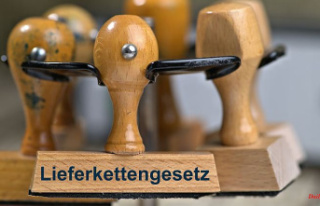Plectonic Biotech wants to revolutionize cancer treatment: The biotech startup wants to build small nanoswitches from DNA strands that recognize cancer cells and activate drugs. But before that, the startup has to survive the "Valley of Death". How, founder Wagenbauer explains at "So techt Germany".
It was just four years ago that Klaus Wagenbauer and his co-founders had the idea of making more of their doctoral theses. "We have to get that out into the world," he summarizes the mood at the founding of Plectonic Biotech in the ntv podcast "So techt Deutschland".
The biotech startup wants to revolutionize cancer treatment. Nanoswitches should recognize tumor cells, dock and activate a drug. The nanoswitches are made of "strands of DNA that are 10 to 20 nanometers in size," says Wagenbauer, explaining the technology.
If you classify classic chemotherapy as a watering can principle, the nanoswitch from Plectonic would be the microsurgical scalpel among cancer therapies. The financial support from SPRIND is helpful: a state agency that promotes so-called leap innovations. Because biotech developments take many years, and with the help of SPRIND, Plectonic can "survive the valley of death," Wagenbauer refers to a problem faced by many German startups. Because they are more or less well financed, especially in the start-up phase. But then there is often a lack of follow-up financing to survive the growth phase, which then often ends with the "death" of the company.
In the new episode of "So techt Deutschland", Klaus Wagenbauer explains why personalized medicine doesn't work and why the Biontech founders are role models for him.












